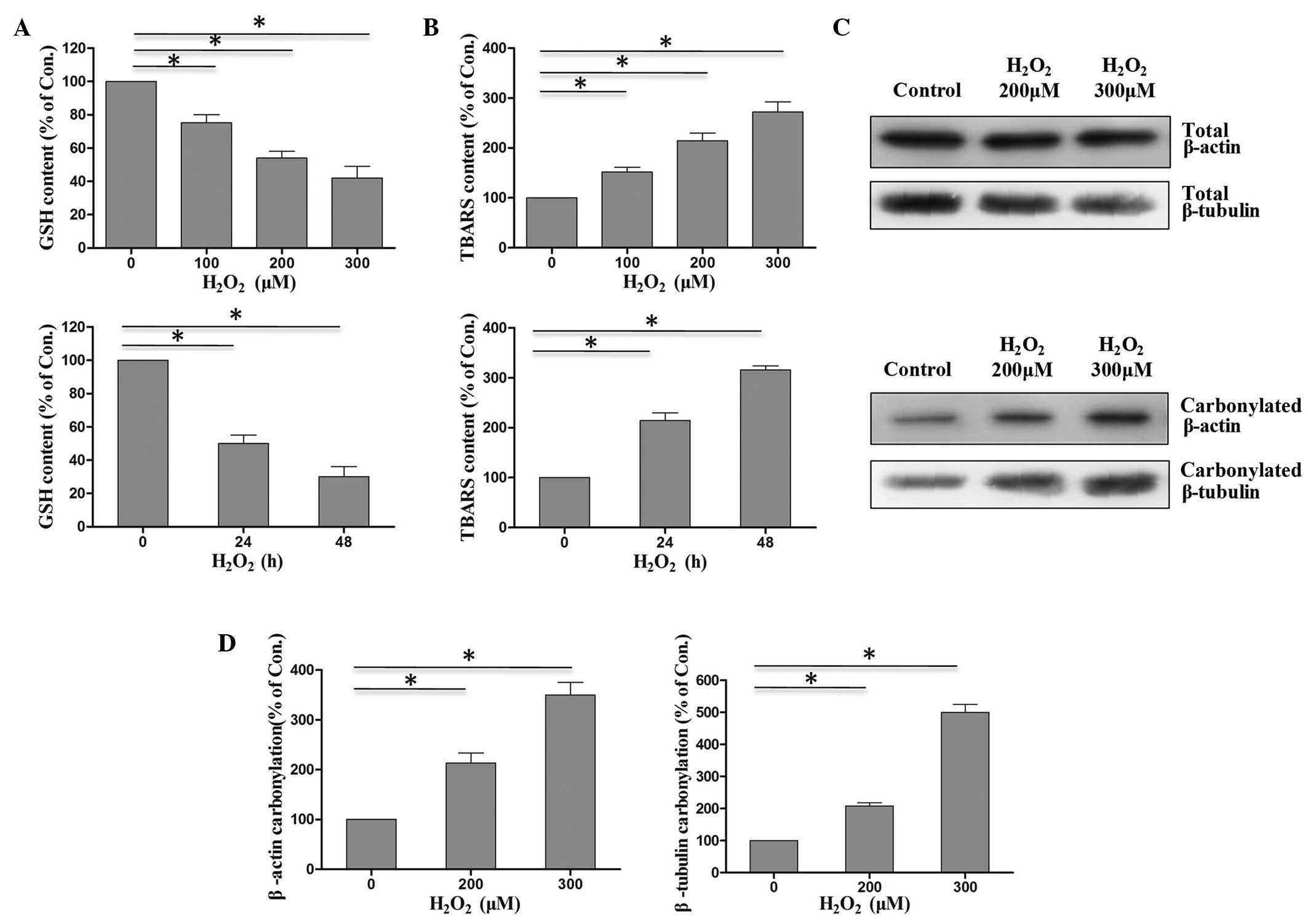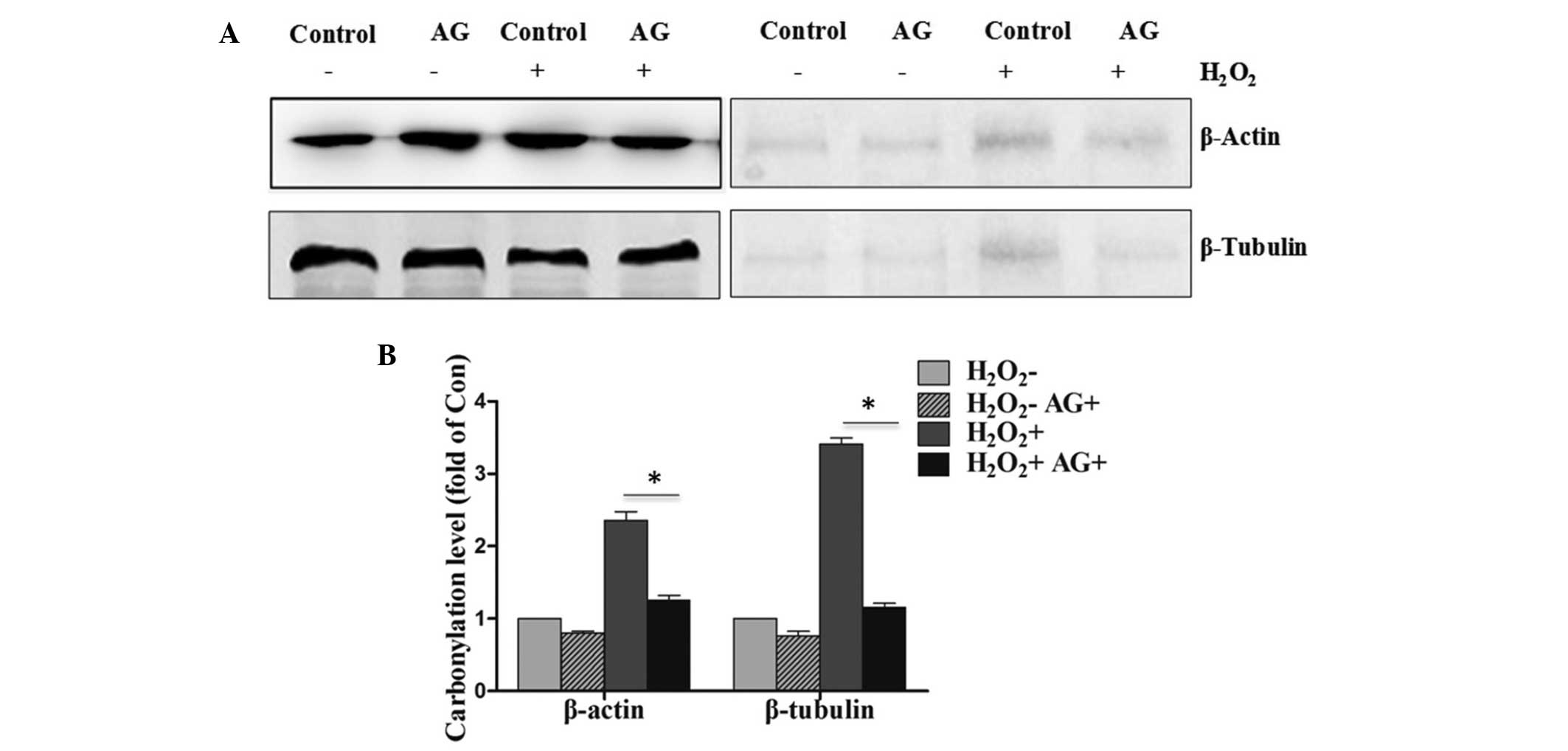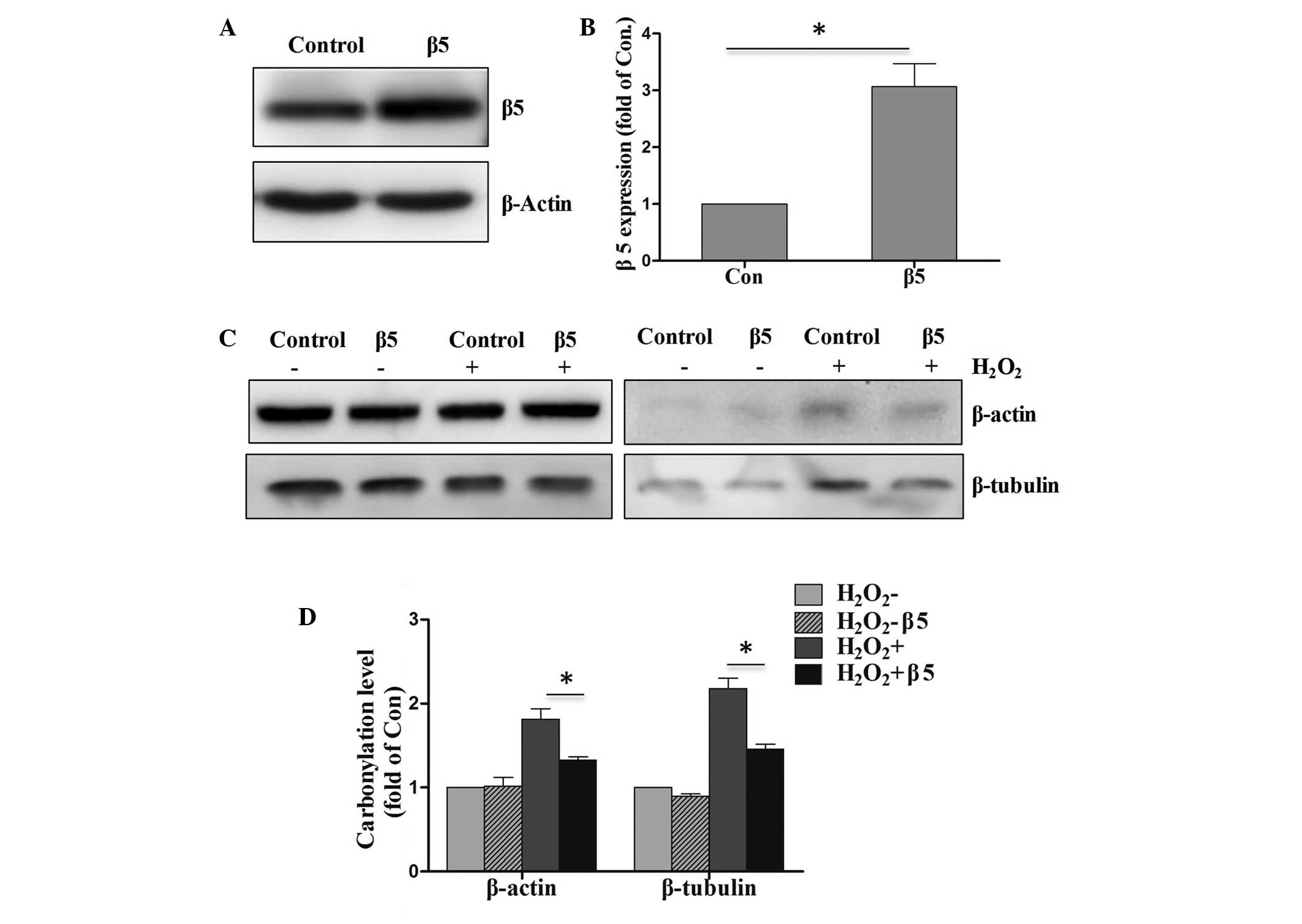|
1
|
Strong K, Mathers C and Bonita R:
Preventing stroke: Saving lives around the world. Lancet Neurol.
6:182–187. 2007. View Article : Google Scholar : PubMed/NCBI
|
|
2
|
Langlois JA, Rutland-Brown W and Wald MM:
The epidemiology and impact of traumatic brain injury: A brief
overview. J Head Trauma Rehabil. 21:375–378. 2006. View Article : Google Scholar : PubMed/NCBI
|
|
3
|
Loane DJ and Faden AI: Neuroprotection for
traumatic brain injury: Translational challenges and emerging
therapeutic strategies. Trends Pharmacol Sci. 31:596–604. 2010.
View Article : Google Scholar : PubMed/NCBI
|
|
4
|
Bramlett HM and Dietrich WD: Progressive
damage after brain and spinal cord injury: Pathomechanisms and
treatment strategies. Prog Brain Res. 161:125–141. 2007. View Article : Google Scholar : PubMed/NCBI
|
|
5
|
Petronilho F, Feier G, de Souza B,
Guglielmi C, Constantino LS, Walz R, Quevedo J and Dal-Pizzol F:
Oxidative stress in brain according to traumatic brain injury
intensity. J Surg Res. 164:316–320. 2010. View Article : Google Scholar : PubMed/NCBI
|
|
6
|
Hall ED, Vaishnav RA and Mustafa AG:
Antioxidant therapies for traumatic brain injury.
Neurotherapeutics. 7:51–61. 2010. View Article : Google Scholar : PubMed/NCBI
|
|
7
|
Kilinca D, Gallob G and Barbeea KA:
Mechanically-induced membrane poration causes axonal beading and
localized cytoskeletal damage. Exp Neurol. 212:422–430. 2008.
View Article : Google Scholar : PubMed/NCBI
|
|
8
|
Castro JP, Ott C, Jung T, Grune T and
Almeida H: Carbonylation of the cytoskeletal protein actin leads to
aggregate formation. Free Radic Bio Med. 53:916–925. 2012.
View Article : Google Scholar
|
|
9
|
Castro JP, Jung T, Grune T and Almeida H:
Actin carbonylation: From cell dysfunction to organism disorder. J
Proteomics. 92:171–180. 2013. View Article : Google Scholar : PubMed/NCBI
|
|
10
|
Smerjac SM and Bizzozero OA: Cytoskeletal
protein carbonylation and degradation in experimental autoimmune
encephalomyelitis. J Neurochem. 105:763–772. 2008. View Article : Google Scholar : PubMed/NCBI
|
|
11
|
Zheng J and Bizzozero OA: Accumulation of
protein carbonyls within cerebellar astrocytes in murine
experimental autoimmune encephalomyelitis. J Neurosci Res.
88:3376–3385. 2010. View Article : Google Scholar : PubMed/NCBI
|
|
12
|
Reed TT, Owen J, Pierce WM, Sebastian A,
Sullivan PG and Butterfield DA: Proteomic identification of
nitrated brain proteins in traumatic brain-injured rats treated
postinjury with gamma-glutamylcysteine ethyl ester: Insights into
the role of elevation of glutathione as a potential therapeutic
strategy for traumatic brain injury. J Neurosci Res. 87:408–417.
2009. View Article : Google Scholar : PubMed/NCBI
|
|
13
|
Dalle-Donne I, Rossi R, Giustarini D,
Gagliano N, Lusini L, Milzani A, Di Simplicia P and Colombo R:
Actin carbonylation: From a simple marker of protein oxidation to
relevant signs of severe functional impairment. Free Radic Biol
Med. 31:1075–1083. 2001. View Article : Google Scholar : PubMed/NCBI
|
|
14
|
Verma RS, Mehta A and Srivastava N: In
vivo chlorpyrifos induced oxidative stress: Attenuation by
antioxidant vitamins. Pestic Biochem Phys. 88:191–196. 2007.
View Article : Google Scholar
|
|
15
|
Furukawa S, Fujita T, Shimabukuro M, Iwaki
M, Yamada Y, Nakajima Y, Nakayama O, Makishima M, Matsuda M and
Shimomura I: Increased oxidative stress in obesity and its impact
on metabolic syndrome. J Clin Invest. 114:1752–1761. 2004.
View Article : Google Scholar : PubMed/NCBI
|
|
16
|
Zhang F and Iadecola C: Temporal
characteristics of the protective effect of aminoguanidine on
cerebral ischemic damage. Brain Res. 802:104–110. 1998. View Article : Google Scholar : PubMed/NCBI
|
|
17
|
Al-Majed AA, Khattab M, Raza M,
Al-Shabanah OA and Mostafa AM: Potentiation of diclofenac-induced
anti-inflammatory response by aminoguanidine in carrageenan-induced
acute inflammation in rats: The role of nitric oxide. Inflamm Res.
52:378–382. 2003. View Article : Google Scholar : PubMed/NCBI
|
|
18
|
Alipour M, Gadiri-Soufi F and Jafari MR:
Effect of aminoguanidine on sciatic functional index, oxidative
stress, and rate of apoptosis in an experimental rat model of
ischemia-reperfusion injury. Can J Physiol Pharm. 92:1013–1019.
2014. View Article : Google Scholar
|
|
19
|
Banan A, Fields JZ, Talmage DA, Zhang Y
and Keshavarzian A: PKC-beta1 mediates EGF protection of
microtubules and barrier of intestinal monolayers against oxidants.
Am J Physiol Gastrointest Liver Physiol. 281:G833–G847.
2001.PubMed/NCBI
|
|
20
|
Yao X, Liu J and McCabe JT: Alterations of
cerebral cortex and hippocampal proteasome subunit expression and
function in a traumatic brain injury rat model. J Neurochem.
104:353–363. 2008.PubMed/NCBI
|
|
21
|
Chondrogianni N, Tzavelas C, Pemberton AJ,
Nezis IP, Rivett AJ and Gonos ES: Overexpression of proteasome
beta5 assembled subunit increases the amount of proteasome and
confers ameliorated response to oxidative stress and higher
survival rates. J Biol Chem. 280:11840–11850. 2005. View Article : Google Scholar : PubMed/NCBI
|
|
22
|
Schouten JW: Neuroprotection in traumatic
brain injury: A complex struggle against the biology of nature.
Curr Opin Crit Care. 13:134–142. 2007. View Article : Google Scholar : PubMed/NCBI
|
|
23
|
Muntane G, Dalfó E, Martinez A, Rey MJ,
Avila J, Pérez M, Portero M, Pamplona R, Ayala V and Ferrer I:
Glial fibrillary acidic protein is a major target of glycoxidative
and lipoxidative damage in Pick's disease. J Neurochem. 99:177–185.
2006. View Article : Google Scholar : PubMed/NCBI
|
|
24
|
Li J, Powell SR and Wang X: Enhancement of
proteasome function by PA28-alpha; overexpression protects against
oxidative stress. FASEB J. 25:883–893. 2011. View Article : Google Scholar : PubMed/NCBI
|
|
25
|
Neely MD, Boutte A, Milatovic D and
Montine TJ: Mechanisms of 4-hydroxynonenal-induced neuronal
microtubule dysfunction. Brain Res. 1037:90–98. 2005. View Article : Google Scholar : PubMed/NCBI
|


















